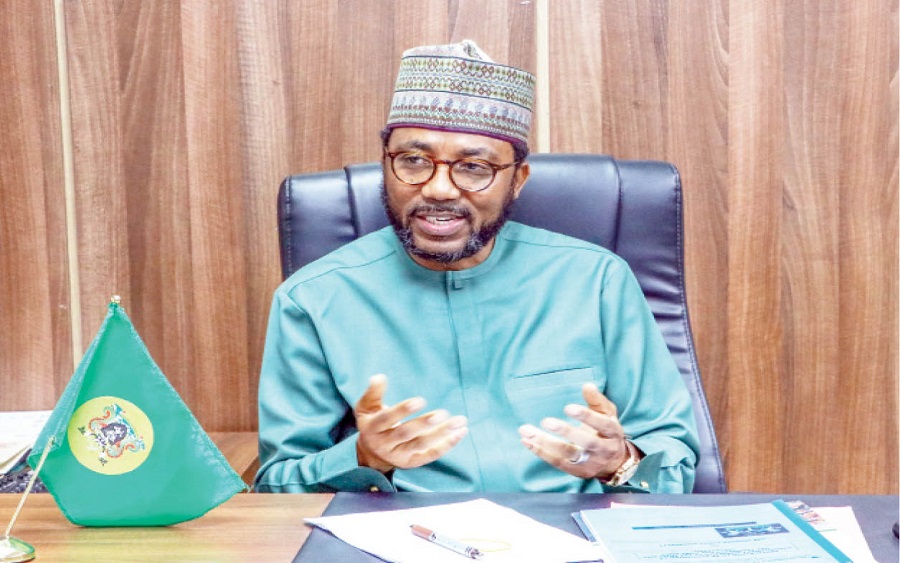The Nigerian Ports Authority (NPA) revealed that the Lekki and Tin Can Island ports are operating “far beyond their installed capacities.”
This was disclosed by Mr Mohammed Bello-Koko, Acting Managing Director of Nigerian Ports Authority (NPA), in an interview with Newsmen on Sunday.
He stated that this means if the ports were built to handle 500,000 Twenty-Foot Equivalent Units (TEUs), for instance, probably they are now handling about 700,000 TEUs, citing issues related to congestion and infrastructure.
What he said
“There is no space to expand the ports. What we need to do is to improve on the activities in the ports, in terms of efficiency.
“In 2006, when NPA concessioned the terminals, there was a Development Plan between the NPA and the terminal operators and that development plan included both physical development and the deployment of equipment.
“The terminal operators have met those agreements and everything has evolved, but there is need for bigger and more efficient equipment, better Information Technology IT systems, and so on,” he said.
He added that the country has seen an improvement in terms of efficiency, noting as well, that there is still room for more development.
“We have observed system downtime in one or two of the terminals, especially the APM Terminals, which is one of the terminals.
“Whenever APM Terminal system is down, it causes a lot of backlog in terms of traffic.
“What we have done is to sit down with the terminal operators and tell them that they need to improve on their operations; we have Monitoring and Regulatory Department in the NPA, which has an index that, on a monthly basis, we look at the operations and grade them.
“We also sit with them at the end of the quarter to discuss their performance; we examine where they have done well and where they are lagging behind.
“We have also emphasised the need for better synergy between what the terminal operators are doing and the shipping lines, because some of them also have affiliated shipping lines working with them.
“To improve the operations within the ports, we came up with a policy that established empty container holding bays and we mandated all shipping lines to ensure that they have a holding bay outside the port premises for their empties,” he revealed.
He added that the measures are taken to ensure that importers, when they take away their cargo from the port to offload at their business premises or warehouse, do not bring the empty container into the port as such containers should rather be taken into the holding bay.
Secondly, the FG mandated that for every vessel that comes into Nigeria, when it is sailing out, it must take away at least 80 per cent of the containers it brought in, either as empty or as export cargo, because Nigeria was already being turned into a dumping ground for empty containers.
“To a large extent, that has worked because those empty containers have been removed. But we are ensuring that such is being monitored and efficiency has increased,” he said.
He revealed that the electronic call-up system, the ‘Eto’, was analysed following the months of February to May.
He stated that the NPA observed lapses one of which was the non-deployment of the electronic call-up system – the Information Technology IT system – that should have been in place in some locations in the satellite truck parks.
“We also looked at the non-deployment of physical infrastructure such as the bollards, the automated gates, and we gave them ultimatum to deploy the infrastructure or lose the contracts.
“The essence of ‘Eto’ was actually to streamline the movement of cargo in and out of the ports, reduce human interference, and speed up the process of cargo delivery.
“As long as there is human interference, there would be delays, there would be extortion and so on. What we need to do is to work on the human interference, stealing of Eto tickets and so on,” he said
What you should know
Recall Nairametrics reported in September that the Nigerian Ports Authority, NPA, disclosed that Nigeria’s maritime industry accounts for 70% of cargo trade in West and Central Africa, adding that the development of deep seaports could be a huge potential revenue earner for the nation.
